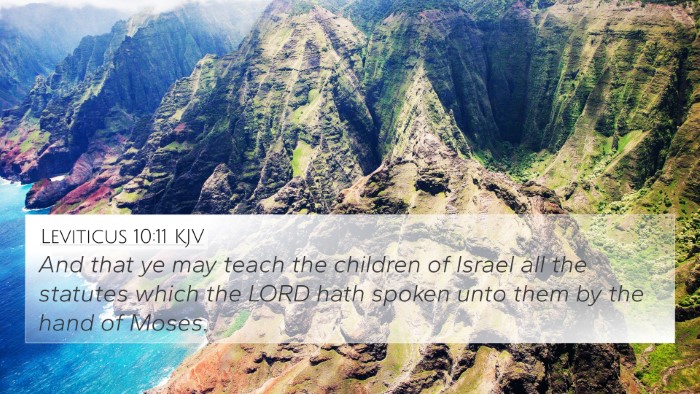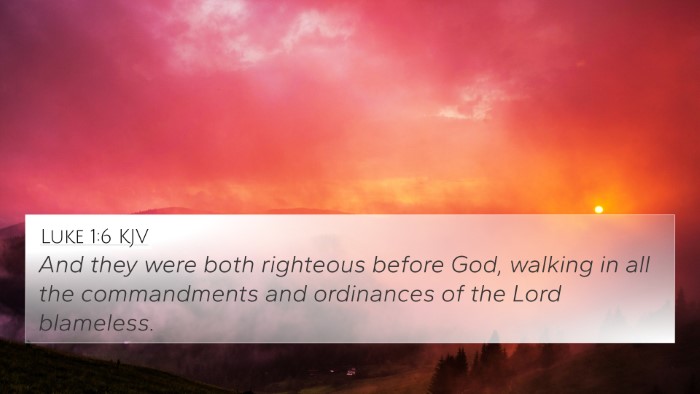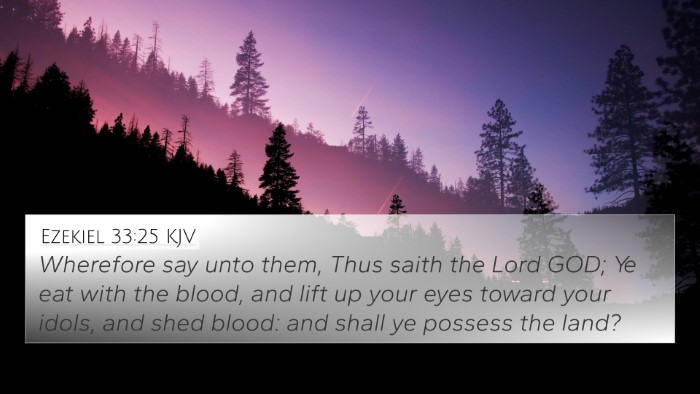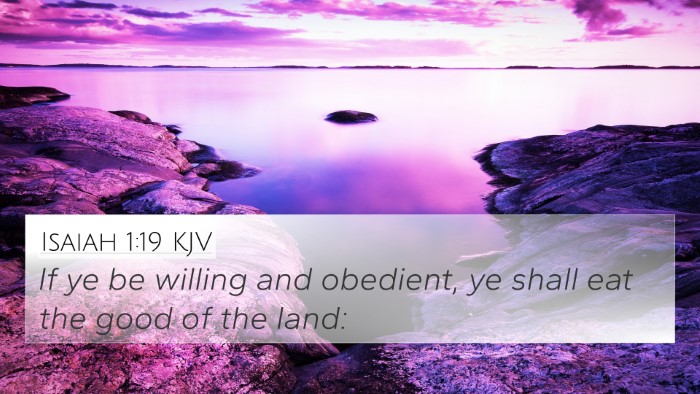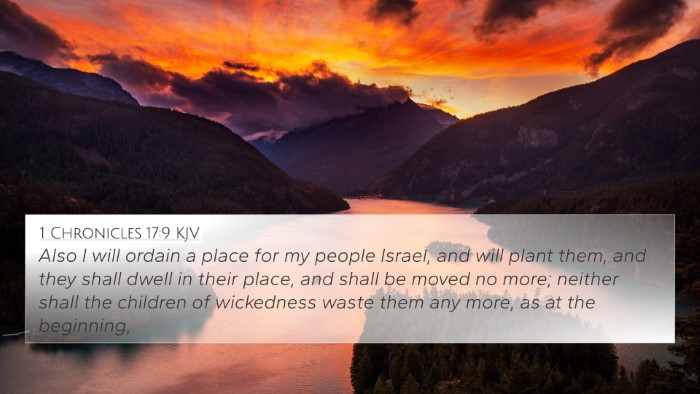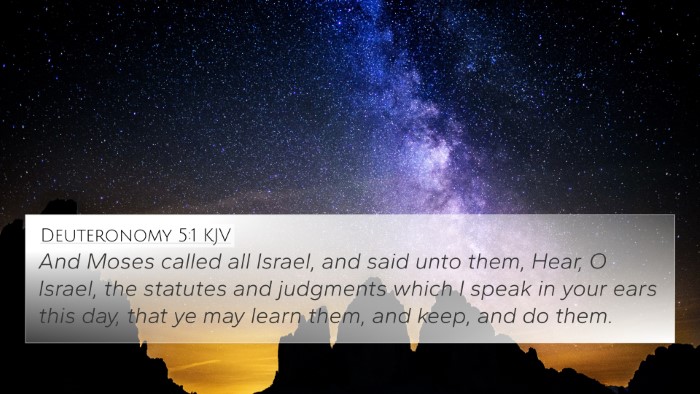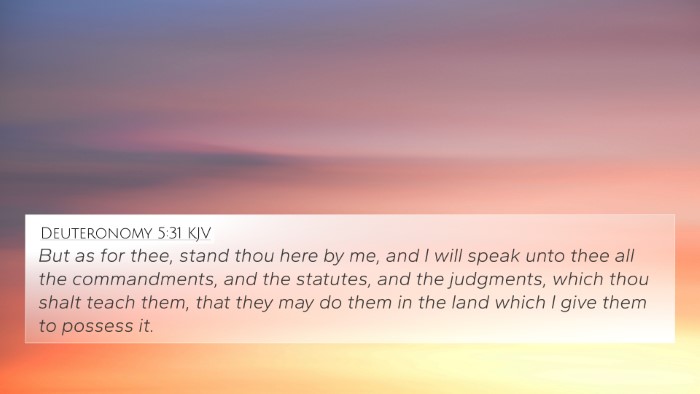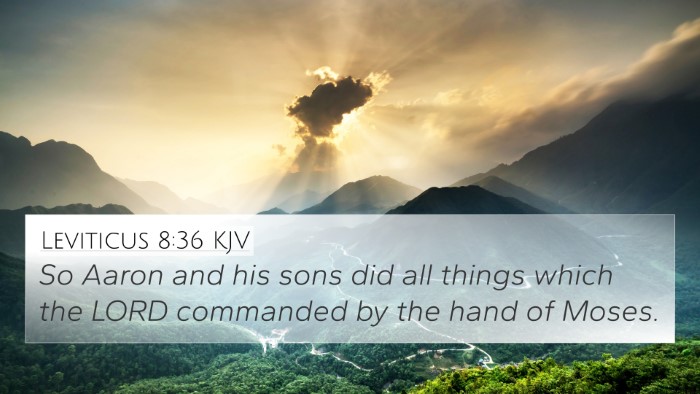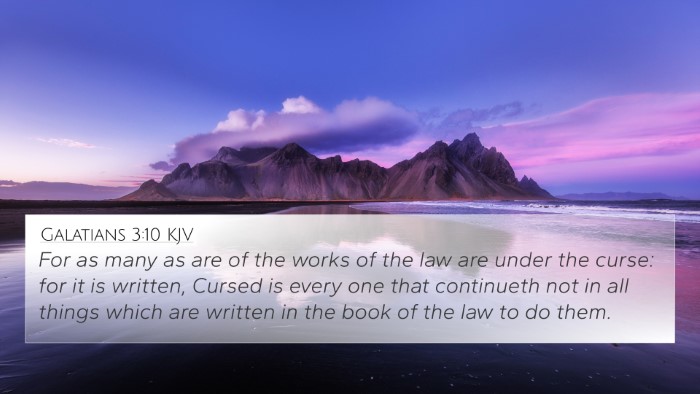Understanding 2 Chronicles 33:8
The verse 2 Chronicles 33:8 states:
"Neither will I anymore remove the foot of Israel from out of the land which I have appointed for your fathers; so that they will take heed to do all that I have commanded them, according to the whole law and the statutes and the ordinances by the hand of Moses."
Summary of Meaning
This verse highlights God's commitment to Israel, emphasizing His promises and covenant. Although the context is during the reign of Manasseh, a king known for his idolatry and sin, God reaffirms His dedication to the land and the people of Israel provided they adhere to His commandments.
Commentary Insights
Combining insights from notable public domain commentaries, we can glean rich interpretations and implications:
Matthew Henry's Commentary
Matthew Henry notes that this verse signifies God's unchanging nature in His promises. Despite Israel’s failures, including the sinful practices under Manasseh, God assures that He will not abandon the land He chose for them if they remain faithful to His laws. This points to God's mercy and the conditions of His covenant, highlighting the balance between divine sovereignty and human responsibility.
Albert Barnes' Notes
Albert Barnes emphasizes that God's declaration of not removing Israel from the land underscores His fidelity to His covenant. Barnes interprets this as a reassurance to the Israelites of God's persistent love and the hope of restoration. The last part of the verse reinforces the importance of obedience to the law, suggesting that adherence to God's statutes leads to continued blessings.
Adam Clarke's Commentary
Adam Clarke discusses the significance of God's promise in the context of restoration after periods of disobedience. He highlights that the emphasis on Mosaic Law reflects the foundational role of teachings that guide the nation. Clarke stresses that true restoration requires a return to these practices, implying a strong link between divine favor and fidelity to moral and spiritual laws.
Cross-Referencing Biblical Texts
To better grasp the implications of 2 Chronicles 33:8, it is beneficial to engage in inter-Biblical dialogue through scriptural cross-referencing. Here are some relevant cross-references that provide deeper insights:
- Deuteronomy 30:1-5: This passage discusses Israel's restoration upon returning to God, echoing the themes found in 2 Chronicles.
- 2 Kings 21:14: Similar context about God's judgment and the consequences of disobedience during King Manasseh’s reign.
- 2 Chronicles 7:14: God's call for repentance and the promise to heal the land, showcasing the conditional aspect of His promises.
- Jeremiah 31:35-37: A strong affirmation of God's eternal commitment to Israel, reflecting His steadfastness in the promise of the land.
- Ezekiel 36:24-28: Discussing cleansing and the restoration of Israel, further connecting the themes of obedience and blessing.
- Romans 11:1-5: New Testament insight into God's fidelity despite periods of disobedience, with parallels to the Old Testament narratives.
- Hebrews 8:6-13: Discusses the new covenant, showing the continuity of God's promises from the old to the new testament.
Thematic Connections
The thematic connections within Scripture are profound. 2 Chronicles 33:8 not only relates to the theme of restoration but also highlights the continuous nature of God's covenant. The interplay between human disobedience and divine faithfulness emerges as a central narrative throughout both the Old and New Testaments.
Applying Cross-References for Deeper Understanding
For anyone seeking tools for Bible cross-referencing, consider using a Bible concordance or a Bible cross-reference guide. These tools can help facilitate a comprehensive understanding by identifying connections between these verses and the overarching themes present in the text.
Conclusion
In summary, 2 Chronicles 33:8 provides a crucial insight into God's unyielding commitment to His people amidst their failures. Through a careful study of the scripture and its cross-references, one can gain valuable understanding of the importance of obedience and the nature of divine promises. This verse serves as a reminder of the hope that remains for all who seek to follow God’s teachings.




